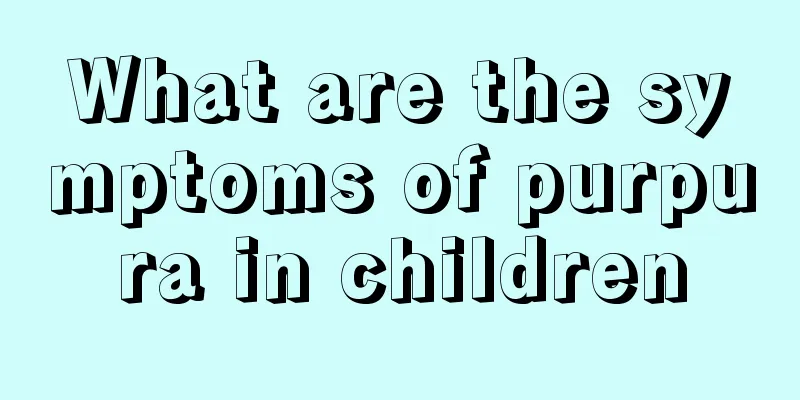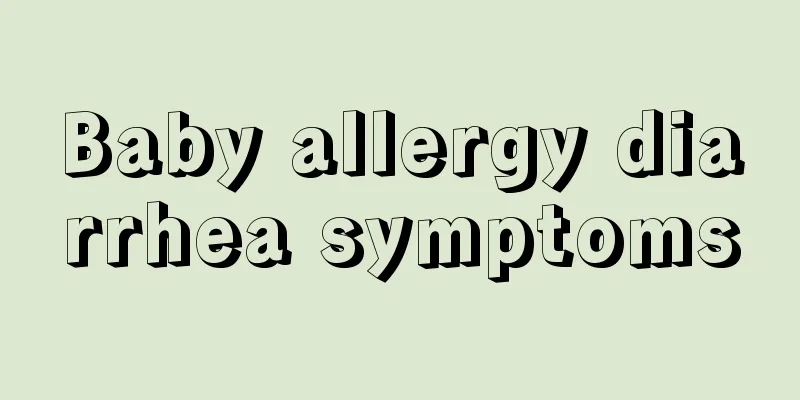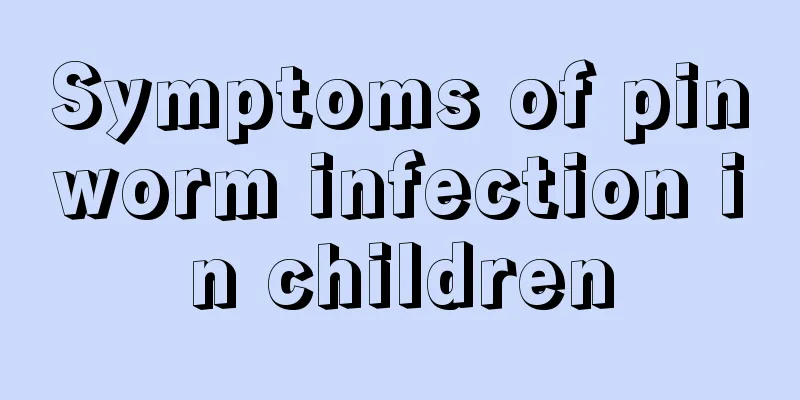Why does my baby sweat coldly when sleeping at night?

|
In our daily lives, many parents and friends are very concerned about their baby's physique. Especially some young mothers are very panicked when they find that their children are sweating cold sweats when sleeping at night. So what is going on? The editor will explain it in detail below, let’s take a look! It is common for babies to sweat during sleep, and it is not always a symptom of weakness or illness. Many parents believe that their children’s constant sweating is due to their weak constitution. In fact, a considerable number of children suffer from physiological hyperhidrosis. Physiological hyperhidrosis is more common in the head and neck, often occurring within half an hour after falling asleep, and sweating stops in about an hour. Infants and young children have an active metabolism and are active and lively. Some of them cannot rest even after going to bed at night, so they may sweat on their heads after falling asleep. The so-called physiological hyperhidrosis refers to sweating during sleep when the child is well-developed, healthy, and has no disease. Parents are often accustomed to deciding the best environmental temperature for their children based on their own subjective feelings, and like to cover their babies with more blankets and keep them tightly covered. Because children's brain and nervous system are not yet fully developed and they are in the growth and development period, their body metabolism is very active. Coupled with the stimulation of overheating, they can only regulate normal body temperature by sweating to evaporate the heat in the body. In addition, drinking milk, malted milk or eating chocolate before going to bed can also cause sweating in children. Some parents give their children milk, malted milk, etc. before they go to sleep. After the child falls asleep, the body produces a large amount of heat, which is mainly dissipated through sweating through the skin. In addition, too high room temperature or excessive warmth can also cause children to sweat while sleeping, which are all physiological sweating. Pathological sweating occurs when the child is in a quiet state, such as sweating caused by rickets, which manifests as obvious sweating on the child's head in the first half of the night after falling asleep. Because the pillow is irritated by sweat, babies often shake their heads and rub against the pillow when they sleep, resulting in sparse hair and loss of hair on the pillow, forming typical annular hair loss on the pillow, which is medically known as "occipital baldness". It is an early manifestation of rickets in infants. As long as vitamin D and calcium are supplemented in time, rickets can be controlled and sweating will stop by itself. If a child sweats not only in the first half of the night but also in the second half of the night and before dawn, it is usually a sign of illness, the most common of which is tuberculosis. Tuberculosis also has other symptoms, such as low fever, fatigue, loss of appetite, flushed cheeks, etc. Children with tuberculosis tend to sweat easily during daytime activities, which is called spontaneous sweating, and sweating at night is called night sweats. If you suspect your child is infected with tuberculosis, a lung X-ray or a tuberculin test should be done for timely diagnosis and treatment. Children with weak constitutions often sweat in patches on their head, chest, and back when they are active during the day or after falling asleep at night. It is often caused by malnutrition due to improper feeding or poor digestion and absorption. In terms of nursing, attention should be paid to adjusting feeding methods, promoting children's appetite, and increasing the intake of protein, fat and sugar. If necessary, traditional Chinese medicine can be used to regulate spleen and stomach disharmony. Therefore, children's sweating during sleep should be carefully distinguished, and the child should be taken to the hospital for examination if necessary, and timely treatment should be given if abnormalities are found. Through the editor’s sharing above, you have a detailed understanding of the problem of your baby sweating coldly at night. So in the future, if your baby has this situation, you might as well refer to the methods shared by the editor and try them more! |
<<: How to treat bronchitis in a three-year-old baby
>>: At what age do children usually start to change their teeth?
Recommend
Why do children sweat easily?
Many children have problems with night sweats. It...
How to deal with a baby's low fever
Some babies often have a low fever when they are ...
Symptoms of sleepiness after baby falls from bed
After a baby learns to roll over after birth, par...
Will children not grow taller if they learn hip-hop dancing?
Street dance is a very popular dance in the West....
4 numbers to help children eat healthily and absorb well
Preschool babies are at the peak of growth and de...
Can a two month old baby sit?
Although two-month-old babies have adapted to lif...
What is the cause of appendicitis in children?
Nowadays, many children suffer from appendicitis....
How to use pediatric massage to relieve gas?
Most babies will have poor gastrointestinal sympt...
Can children drink coffee?
Coffee is a common thing in people's daily li...
What to do if your baby sweats after having a fever
Fever is very common in babies. When a baby has a...
What is the most nutritious food for children?
Children's diet is the most concerned issue f...
What should I do if my baby has torticollis? How to correct torticollis
Baby torticollis is mainly caused by congenital h...
What happens if a child has a lump in his breast?
Some parents find that their children have breast...
What to do if the umbilical cord of a newborn is infected
We all know that taking care of a newborn is a pa...
What should I do if my child is allergic to amoxicillin?
Amoxicillin is a prescription drug that everyone ...









